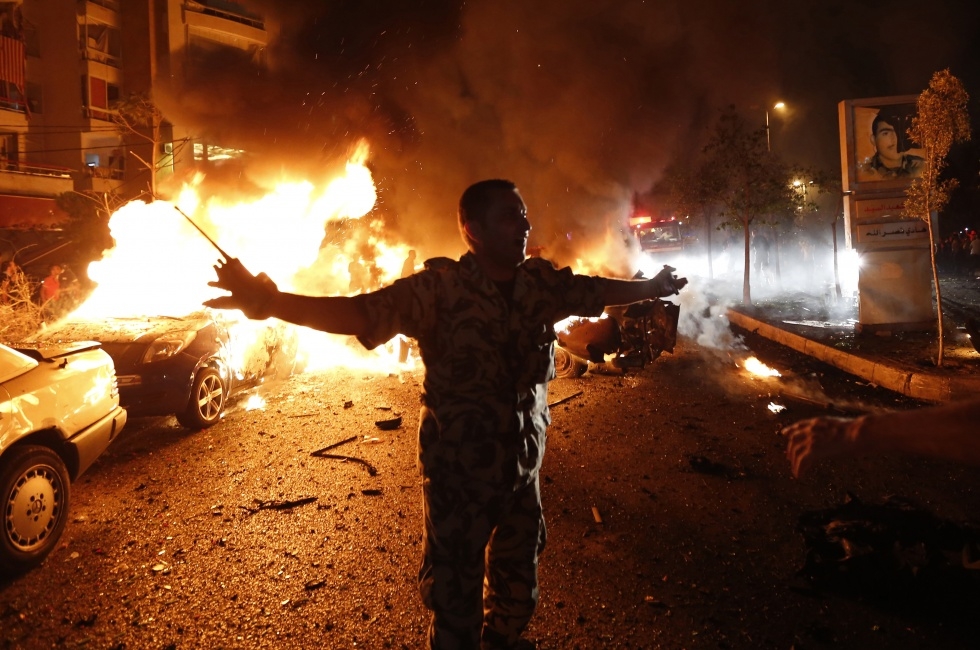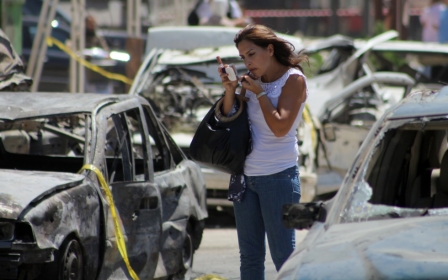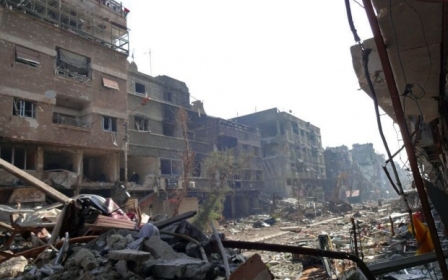Suicide car bomb injures 12 people in busy Beirut suburb

A suicide car bomb rocked a southern Beirut suburb just after midnight early Tuesday injuring 12 people, Lebanon's official news agency reported.
The explosion in the Tayyouneh neighbourhood occurred near an army checkpoint and a cafe where football fans watched a World Cup match.
In the aftermath, several cars caught on fire at the scene and firefighters were called in to tackle the blaze, an AFP photographer said. Thick black smoke has since been seen billowing over parts of the city.
A witness told Lebanese television that he saw a white Mercedes car travelling fast on the wrong side of the road before exploding. Unverified reports soon after the explosion suggested that the bomber may have been female.
The checkpoint is close to the entrance to the southern suburbs which are seen as a Shia, and particularly Hezbollah, stronghold in Beirut.
The blast comes just days after a suicide bomber targeted an army checkpoint on the main highway connecting Beirut and Damascus.
It is believed that Lebanon's general security head Major General Abbas Ibrahim was the target of the original blast that killed two and wounded dozens more. The bomb went off just 200 metres away from his convoy, with security services saying the perpetrators were not of Lebanese origin.
No one has taken responsibility for the attack, although initial suspicion fell on the Islamic State in Iraq and the Levant (ISIL), a militant Sunni group, that has taken over large swaths of neighbouring Syria and in recent weeks led an aggressive offensive in Iraq.
Earlier that day, security services busted up an alleged terrorist cell that was planning on assassinating Amal Movement chief and Shia leader, Nabih Berri.
Many fear that the troubles on Lebanon's borders have spilled over into the small country of just over four million people, which has traditionally been plagued by severe sectarian divisions and is experiencing a severe political vacuum.
Beirut saw a string of suicide attacks last summer although the attacks subsided after security was stepped up, and Syrian opposition forces pushed back from the Lebanese border by Hezbollah fighters, allied with Syrian President Bashar al-Assad.
New MEE newsletter: Jerusalem Dispatch
Sign up to get the latest insights and analysis on Israel-Palestine, alongside Turkey Unpacked and other MEE newsletters
Middle East Eye delivers independent and unrivalled coverage and analysis of the Middle East, North Africa and beyond. To learn more about republishing this content and the associated fees, please fill out this form. More about MEE can be found here.



